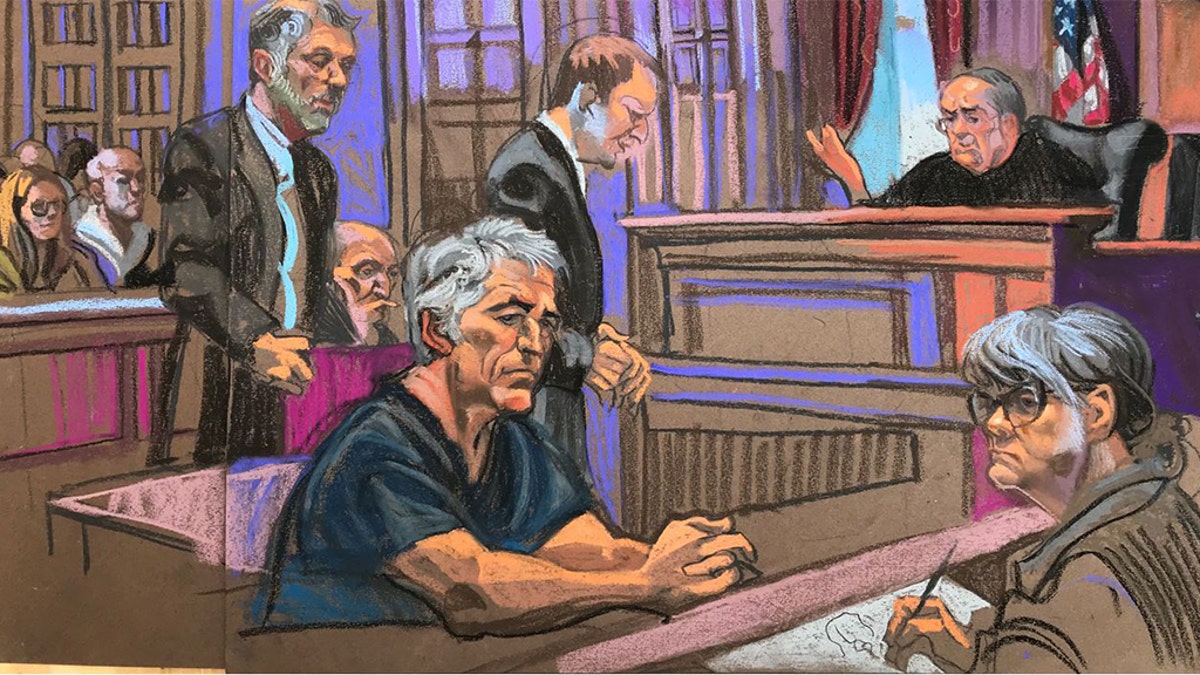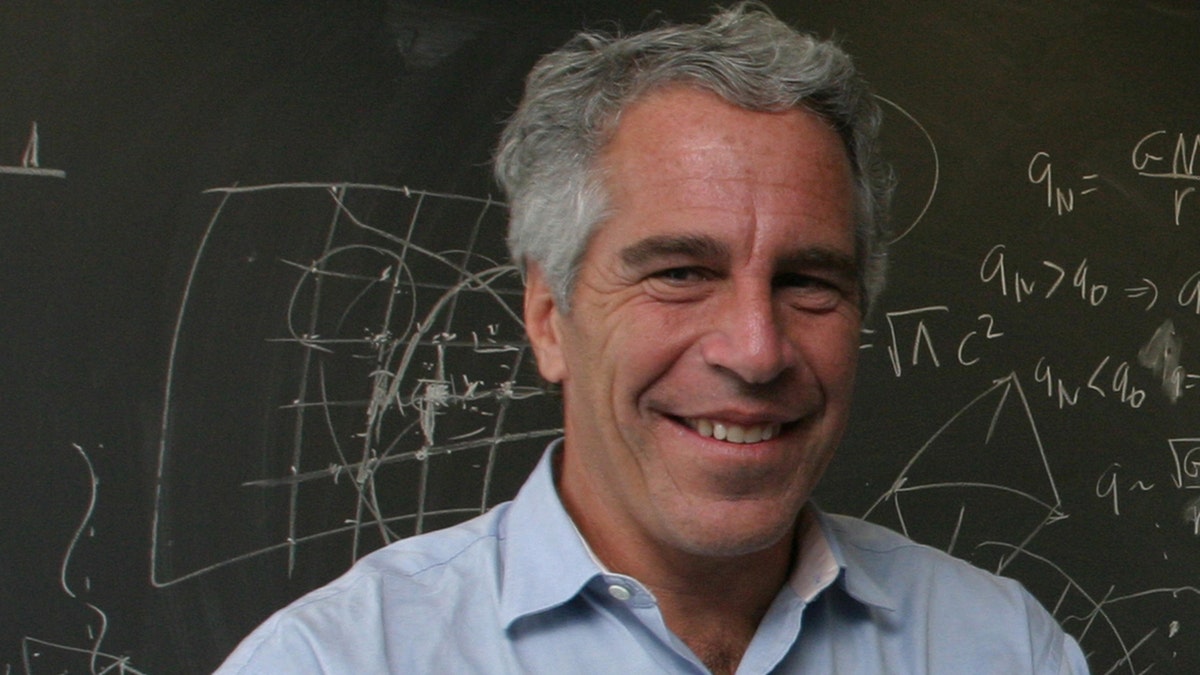Jeffrey Epstein's attorney argues his client should be free on bail
In return, the wealthy financier will offer up his private jet and $77 million New York City mansion as collateral; Bryan Llenas reports.
The arrest of infamous multimillionaire Jeffrey Epstein has prompted much speculation — not the least of which is what steps his attorneys will take to keep him from serving the maximum 45-year sentence in prison.
The indictment against Epstein, filed in the Southern District of New York, charged the incarcerated financier with one count of sex trafficking and one count of a sex trafficking conspiracy. Included in those charges are allegations that Epstein and his employees recruited underage girls to give him erotic massages, and ultimately perform explicit sex acts.
Epstein, 66, is currently being held in the Manhattan Correction Center in Lower Manhattan, a massive incarceration complex that’s currently home to notorious inmates like Paul Manafort and Joaquin “El Chapo” Guzman. On Thursday, Epstein’s lawyers proposed a bail package that would allow him home detention in his Upper East Side mansion.
“The first critical moment is going to be the bail hearing,” Rich Schechter, a former federal prosecutor out of New Jersey, said. “If he is detained, that will really make a difference in what will happen going forward.”

A courtroom sketch of Jeffrey Epstein's hearing last Monday. (Christine Cornell)
Schechter, who had a decades-long career in the Department of Justice, said that the continued detention of Epstein — and revocation of bail — may necessitate a quicker trial because his lawyers won’t extend the litigation through endless motions and appeals.
“If you’re not in custody, time is really not of the essence,” Schechter said. “You can really spend years litigating the case.”
Epstein, presumably, has the resources to both pay his bond if it’s granted, and afford the costs associated with a lengthy criminal trial. Beyond the timeliness and the strain the trial will have on state and federal resources, the issue of Epstein’s continued detention may have an impact on the effectiveness of the prosecution.
Schechter said Epstein’s uninterrupted detention during his case is crucial to the willingness of future victims to come forward. If allowed out on bond, it’s possible Epstein could intimidate potential victims from taking the stand or talking to investigators.
“I think that’s so critical on so many levels,” Schechter said. “Detention changes the timing and length of the case.”
The timeframe of the indictment as it currently stands is from 2002 to 2005, meaning that any potential child victims of Epstein’s from that time would be in their 30's now. The impact their testimony would have on a jury, Schechter said, may be diminished. Furthermore, he said the defense may be able to argue that Epstein’s memory has faded after such a long time.
“I get the feeling that the Southern District [of New York] is determined to make sure that what happened in Florida doesn’t happen again.”
It’s no guarantee that the prosecution will have to rely on the instances of abuse they cited in their indictment, or that they won’t expand the charges Epstein will have to face. During a recent raid on Epstein’s New York City mansion, authorities found troves of photographs of what appeared to be young girls.
Schechter said there would have to be evidence of recent criminal conduct by Epstein to justify the warrant on his New York home. The investigators would have had to believe there was evidence of abuse that occurred after 2008 in the home to justify the raid.
“It’s really a function of where the evidence takes the investigators,” Schechter said.
That evidence is sure to include the materials seized in the raid, as well as previous evidence compiled against him during a 2008 Florida case that allowed Epstein to escape with a 13-month jail sentence — the majority of which he served on a work-release program.
“I get the feeling that the Southern District [of New York] is determined to make sure that what happened in Florida doesn’t happen again,” Schechter said.
Officials for the Southern District Court of New York declined to comment, citing that they could not discuss the details of an ongoing case.

(Photo by Rick Friedman/Corbis via Getty Images)
The infamous Florida case involved Labor Secretary Alexander Acosta, who was the prosecutor who cut the plea bargain with Epstein a decade ago. The agreement had Epstein plead guilty in state court, and avoid prosecution of federal charges. Acosta, who announced Friday he would resign next week, called a jury trial “a roll of the dice.”
Epstein did have to register as a sex offender in the bargain.
That prior registration may prove important in the current prosecution. Schechter said the newfound trove of pornographic images in Epstein’s New York home may prove to the judge that he’s a current danger to young women — and an unrepentant one at that.
A final note of interest in the indictment is the involvement of the corruption unit, a field of law Schechter is intimately familiar with.
“It’s intriguing, I will say that,” Schechter said.
The presence of the corruption unit is significant for a few reasons. First, it means evidence outside the jurisdiction of the SDNY would be inadmissible in court. Furthermore, corruption cases typically involve public officials — meaning their involvement in Epstein’s case leaves the door open for elected or public officials to be implicated in the prosecution.


